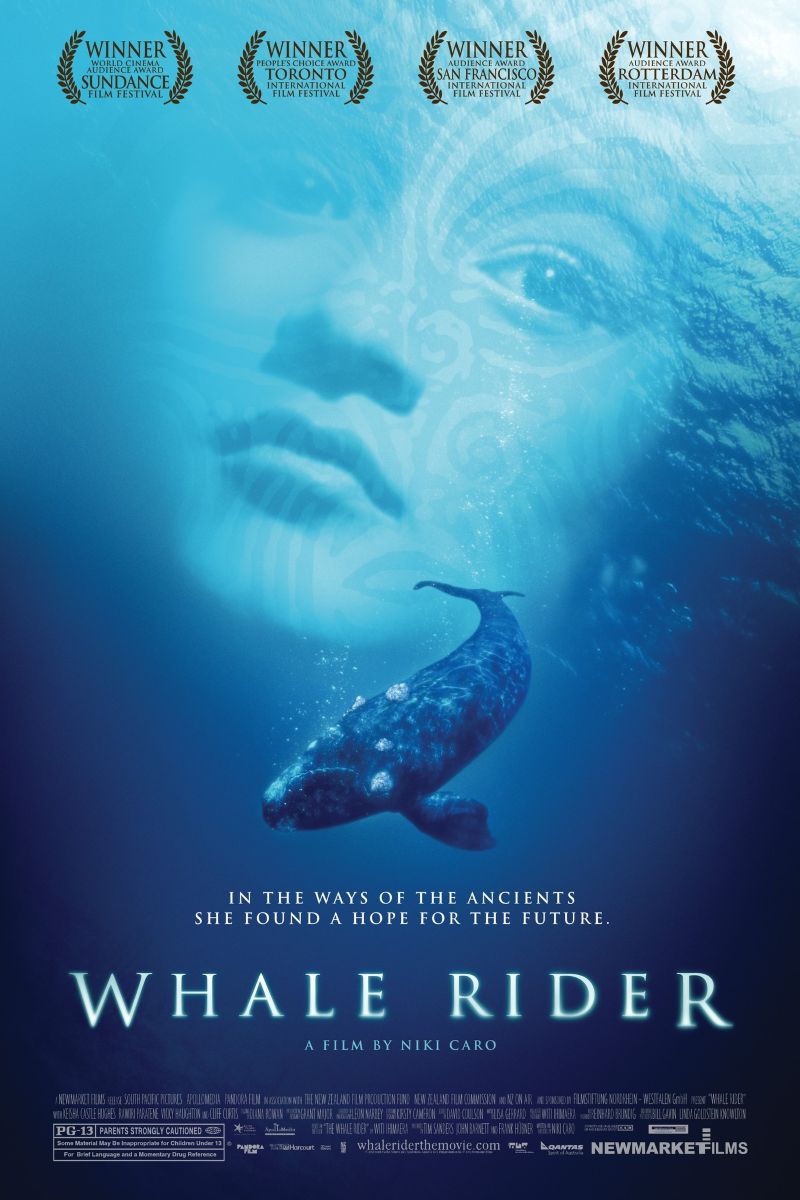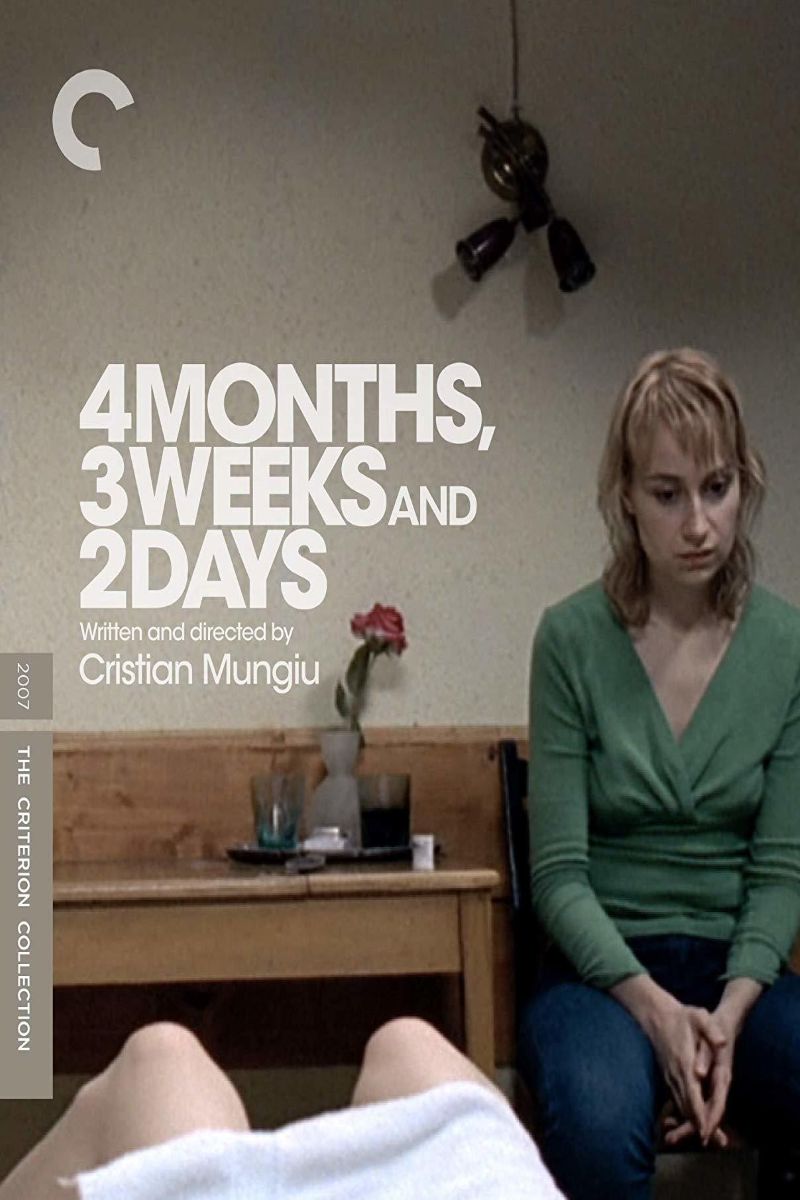
Whale Rider
Whale Rider
Girls aren't allowed to be Whangara chiefs. But that's not acceptable to Paikea (Keisha Castle-Hughes), the 11-year-old powerhouse who believes her destiny is to ride whales and lead her tribe. Courage, leadership, and defiance are all at play in this Kiwi drama from Niki Caro.
主演
🎥 影评与解读
Niki Caro’s “Whale Rider” stands as a luminous achievement in indigenous cinema and feminist filmmaking, weaving together Māori spiritual traditions with a powerful coming-of-age narrative that challenges patriarchal leadership structures while honoring cultural heritage. This 2002 New Zealand drama, anchored by Keisha Castle-Hughes’s extraordinary debut performance, transcends simple generational conflict to become a profound meditation on leadership, destiny, and the evolution of tradition in response to changing times.
Indigenous Feminism and Cultural Authenticity
“Whale Rider” represents a rare cinematic achievement: a film that centers indigenous women’s experiences while maintaining complete cultural authenticity and respect for Māori traditions. Director Niki Caro’s year-long study of te reo Māori (the Māori language) and her collaboration with the Ngati Konohi tribe ensured that the film’s representation of Māori culture emerged from genuine understanding rather than external interpretation.
The film’s approach to indigenous feminism differs significantly from Western feminist frameworks by locating Paikea’s struggle within specifically Māori concepts of leadership, spirituality, and cultural continuity. Her challenge to traditional gender roles doesn’t reject Māori culture but rather calls for its evolution to survive and thrive in the contemporary world.
The authenticity of the film’s cultural representation—from the whakatauki (proverbs) that frame the narrative to the traditional waiata (songs) that accompany crucial scenes—creates space for audiences to understand Māori worldviews on their own terms rather than through colonial filters.
Reimagining Leadership and Authority
Paikea’s journey challenges not just gender restrictions but fundamental assumptions about what constitutes effective leadership. Her grandfather Koro’s adherence to traditional male succession represents more than simple sexism; it reflects deep-seated beliefs about maintaining cultural purity in the face of colonial disruption and modernization pressures.
The film demonstrates how leadership qualities—courage, spiritual connection, selflessness, and wisdom—transcend gender while acknowledging the real institutional barriers that prevent their recognition in female form. Paikea’s eventual acceptance as leader doesn’t simply break gender barriers but transforms the community’s understanding of what leadership looks like.
Her leadership style differs markedly from traditional masculine models emphasized by her grandfather. Where Koro leads through authority and instruction, Paikea leads through service, intuition, and spiritual connection. Her willingness to sacrifice herself to save the beached whales demonstrates leadership as care rather than command.
Intergenerational Trauma and Healing
The film’s exploration of intergenerational relationships reveals how cultural trauma affects entire communities across generations. Koro’s rigid adherence to tradition stems partly from his own grief over cultural loss and his fear that further deviation from ancient ways will result in complete cultural erasure.
Paikea’s birth twin brother’s death becomes a focal point for exploring how patriarchal structures harm entire communities when they limit leadership potential to only half the population. The tragedy reverberates through the family, affecting Koro’s relationship with his son Porourangi and creating the emotional foundation for his rejection of Paikea’s leadership potential.
The film shows how healing cultural trauma requires honoring tradition while allowing for evolution and growth. Paikea’s success as a leader doesn’t reject her ancestors’ wisdom but demonstrates how that wisdom can manifest in new forms appropriate to contemporary challenges.
Spiritual Authority and Female Power
The film’s treatment of spiritual connection as the foundation of leadership offers a powerful alternative to secular Western models of authority based on education, wealth, or political maneuvering. Paikea’s ability to communicate with whales and her deep understanding of Māori spiritual traditions mark her as the rightful heir to leadership regardless of gender restrictions.
Her spiritual gifts aren’t presented as supernatural abilities but as the natural result of genuine cultural connection and openness to ancestral wisdom. This grounding in Māori spiritual traditions provides a framework for understanding female power that doesn’t depend on Western feminist concepts but emerges organically from indigenous knowledge systems.
The whales themselves function as spiritual arbiters, validating Paikea’s leadership through their response to her presence and her willingness to risk everything for their welfare. This supernatural endorsement challenges human-made gender restrictions through reference to higher spiritual authorities.
The Economics of Cultural Survival
While primarily focused on spiritual and cultural themes, “Whale Rider” subtly addresses the economic pressures facing indigenous communities in globalized economies. The young men’s migration to urban areas for work, the community’s economic dependence on limited local resources, and the challenge of maintaining cultural practices while participating in modern economic systems all influence the leadership crisis the film depicts.
Paikea’s generation faces the challenge of maintaining cultural identity while navigating economic realities that their ancestors never encountered. Her emergence as leader suggests possibilities for cultural evolution that doesn’t abandon tradition but adapts it to contemporary circumstances.
The film implies that effective contemporary indigenous leadership must address both spiritual and practical concerns, maintaining cultural integrity while ensuring community survival and prosperity in changing economic contexts.
Challenging Colonial Masculinity
The film’s critique of rigid patriarchal structures extends beyond Māori culture to challenge colonial impositions of European gender roles that may have intensified traditional restrictions on female leadership. Koro’s inflexibility partly reflects colonial influence that emphasized male authority in ways that may have differed from pre-contact Māori gender relations.
Paikea’s father Porourangi’s departure for Germany to pursue art represents one response to cultural pressure—escape and assimilation into globalized culture. His eventual return and acceptance of Paikea’s leadership suggests possibilities for maintaining cultural connection while engaging with the broader world.
The film demonstrates how decolonization requires not just political independence but cultural healing that addresses how colonialism distorted indigenous gender relations and leadership structures.
Environmental Stewardship and Female Wisdom
The beached whales serve as both spiritual test and environmental metaphor, connecting Paikea’s leadership to broader themes of environmental stewardship and the relationship between human and natural worlds. Her success in leading the whales back to sea demonstrates leadership as service to all living beings rather than domination over them.
This environmental dimension adds contemporary urgency to the film’s themes, suggesting that traditional indigenous knowledge—particularly as preserved and expressed by women—offers crucial wisdom for addressing current ecological crises.
Paikea’s connection to the whales represents a form of ecological intelligence that combines spiritual understanding with practical wisdom about maintaining balanced relationships between human communities and natural environments.
Performance and Authenticity
Keisha Castle-Hughes’s performance, which earned her an Academy Award nomination at age 13, achieves remarkable authenticity partly because it emerges from her own Māori heritage and lived experience. Her portrayal of Paikea avoids both sentimentality and precocious wisdom, instead capturing the genuine determination and vulnerability of a young person claiming their destiny against institutional resistance.
The film’s casting of primarily Māori actors and its use of te reo Māori throughout creates linguistic and cultural authenticity that supports the story’s emotional truth. This approach demonstrates how authentic representation enhances rather than limits a film’s universal appeal.
Global Indigenous Rights Movement
“Whale Rider” arrived at a moment of increased global awareness of indigenous rights and the importance of traditional ecological knowledge for addressing contemporary challenges. The film’s success helped bring Māori culture to international audiences while contributing to broader discussions about indigenous leadership and cultural preservation.
The film’s influence extends beyond entertainment to educational and political contexts, where it’s used to illustrate principles of indigenous self-determination and the importance of including women in leadership roles within traditional communities.
Contemporary Relevance
The film’s themes resonate strongly with contemporary discussions about leadership diversity, environmental stewardship, and the importance of traditional knowledge for addressing current challenges. Paikea’s story speaks to young women worldwide who face institutional barriers to leadership while maintaining connection to their cultural roots.
The film’s model of leadership as service rather than domination offers alternatives to masculine leadership styles that prioritize competition and control over collaboration and care. This approach gains particular relevance in contexts where communities face environmental and social challenges requiring collective rather than hierarchical responses.
Conclusion: Evolution of Tradition
“Whale Rider” succeeds because it presents cultural change as evolution rather than abandonment, showing how traditions can grow and adapt while maintaining their essential spiritual and moral foundations. Paikea’s leadership doesn’t reject Māori culture but fulfills its deepest promises by ensuring that the strongest and most capable leaders serve the community regardless of gender.
The film demonstrates that authentic cultural preservation sometimes requires changing surface practices to maintain deeper spiritual and ethical commitments. Paikea’s success as whale rider proves that her ancestors’ wisdom remains relevant when expressed through contemporary leadership that addresses current challenges.
Through its combination of spiritual depth, cultural authenticity, and universal themes of young people claiming their destinies, “Whale Rider” creates a powerful model for indigenous cinema that honors tradition while embracing necessary change. The film shows how individual courage can transform entire communities when it emerges from genuine cultural connection and commitment to collective welfare rather than personal ambition.
🏆 获奖与荣誉
- • Toronto Film Festival People's Choice Award 2002年
- • Sundance Audience Choice Award 2003年
- • 奥斯卡奖 最佳女主角 提名 (Keisha Castle-Hughes)
- • 英国电影学院奖 Best Film Not in English Language
⭐ 评分与链接
相关推荐
评论与讨论
与其他观众一起讨论这个视频
加入讨论
与其他观众一起讨论这个视频
评论加载中...



